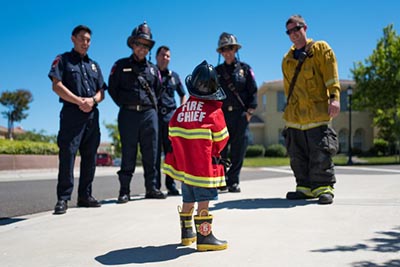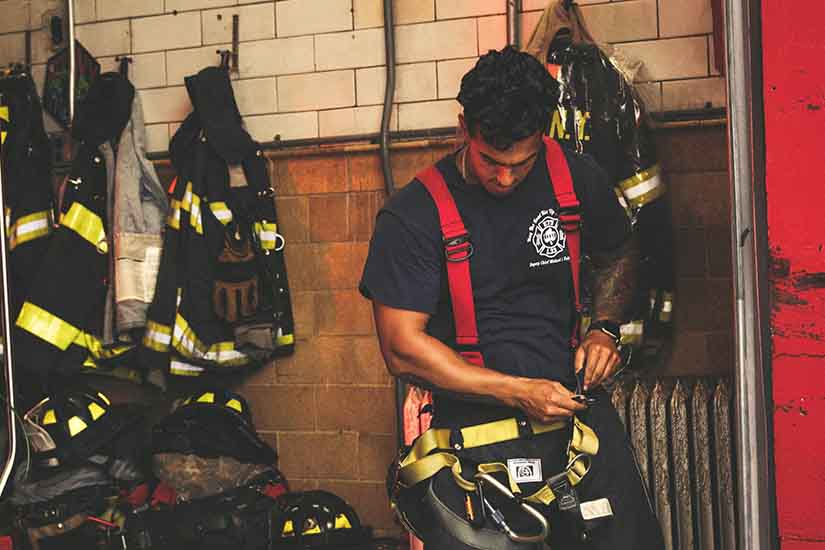Who Are Our First Responders?
First responders are highly trained professionals, such as paramedics, police officers, firefighters and other emergency personnel who provide urgent care in emergency situations. According to Safe Work Australia, there are over 335,000 first responders in Australia.
First responders play an essential and critical part in the community by providing time-sensitive help to vulnerable people who are injured, in heightened states of distress and danger, or deceased.
Every day, first responders are exposed to extremely challenging work conditions where their safety, and the safety of their peers, is at risk. These jobs involve very unprecedented work conditions and frequent exposure to traumatic events.
Their Role in Our Communities:
First responders must undertake intense training and study to qualify for their chosen frontline roles in the community. Part of first responders’ training includes psychologically preparing for predictable and unpredictable events and managing stress and building resilience to respond and manage danger and risk such as social disorder, natural disasters, homicides, suicides, road accidents and other horrific incidents.
Frontline workers are generally not affected after a single traumatic event. Repeated exposure to trauma over time can result in PTSD and other mental health disorders. If left unaddressed, worsening symptoms can lead to early discharge from duty and substance use disorders.
First Responders And PTSD:
Many factors influence the mental health and well-being of our frontline workers. Throughout their careers, first responders are exposed to repeated traumatic and often life-threatening situations daily. Such circumstances can include violent crimes, road trauma, suicides and horrific accidents.
Other stressors contributing to emergency personnel’s psychological distress are lack of sleep due to long shifts, physical demands of the job, limited mental health resources, and workplace conflict.
There are countless studies and published journals indicating how frequent exposure to trauma can manifest into serious psychological illnesses such as depression, anxiety and PTSD. According to United Workers, “emergency service personnel have a significant risk of developing posttraumatic stress disorder in the course of their working career. The risk is more than double the general population and is higher than for police officers or firefighters. An estimated 10% of all emergency service personnel are reported as having PTSD.”
The most significant barrier to first responders asking for help is the attached stigma as many believe if they need support, it means they are weak and incompetent for the job.
When PTSD and other mental health symptoms are left untreated, there is a higher risk of first responders turning to substances to help cope with their pain and grief.
First Responders and Substance Use Disorders:
When we think of alcoholism and addiction, first responders may not come to mind. However, those who work in the emergency service fields exposed to recurring trauma are also susceptible to developing substance use disorders.
Substance Abuse Amongst Police Officers:
The role of police officers in the community is to serve and protect society from harm. The nature of their jobs can be enriching and rewarding; however, they face a lot of stress and trauma daily.
Besides the threat of physical harm to themselves, individuals in law enforcement are exposed to horrifying events like homicide, domestic violence, filicide, overdoses and car wrecks, to name a few.
As a result of their compounding trauma and working primarily in a hypervigilant state, police officers are at an increased risk of substance abuse disorders, specifically alcoholism.
The law enforcement community’s culture can be one of stoicism and sharing a few drinks after work to “take the edge off” a hard day. In an article published by Police Health, they explain 11% of male police officers (and 16% of female) are at risk of alcoholism” which indicates individuals use alcohol as a means to cope with their psychological distress.

Substance abuse Amongst Firefighters:
Firefighters spend their days fighting fires, saving people from car wrecks and managing collapsing buildings to keep civilians safe. Confronted with similar traumatic events as law enforcement, firefighters are at risk of being severely burnt, lung damage and other physical ailments.
Unpredictable and often terrifying circumstances coupled with long work shifts can lead to mental health conditions such as PTSD, depression and anxiety disorders. Like police officers, firefighters are more inclined to turn to alcohol and drugs to combat stressful and overwhelming symptoms. As outlined by the National Survey on Drug Use and Health, “29% of firefighters engage in alcohol abuse, and as many as 10% of firefighters may be currently abusing prescription drugs.”
Substance Abuse Amongst Paramedics and EMTs
Despite being a crucial part of the community, emergency medical technicians, or EMTs, are personnel dispatched to emergencies such as car wrecks, fires, shootings, overdoses and other tragic events. EMT’s provide life-saving emergency response treatment before patients arrive in hospital. The unpredictable environment means EMTs are under constant pressure and must quickly avoid life and death situations.
EMTs often work long shifts and carry an enormous responsibility regarding their patients’ lives, drug dosages and type of treatment to administer.
According to an article by the ABC, “paramedics in Australia have the second-highest rate of suicide of any emergency services workers, including police, firefighters, and prison guards.”
Like their police officer and firefighter peers, EMTs are also at significant risk of developing stress-related disorders and PTSD, making them susceptible to developing substance use disorders.
Because EMTs have easy access to highly addictive prescription medication, they are more likely to become addicted to drugs such as opioids, fentanyl and ketamine. Since 2010, Freedom of Information studies shows there have been over 100 investigations into the theft of addictive drugs by ambulance workers.
Recovery Is Possible:
There are no doubts that first responders witness and experience horrifying circumstances daily. We may never understand their exhaustive efforts to serve, protect and treat the community in times of need. Our first responders, especially those struggling with PTSD and substance use disorders, need a safe and compassionate environment to begin the recovery process. It may be difficult for first responder personnel to ask for help, as they are usually the ones dependent on for assistance.
Treatment programs, like Seasons Bali, will provide programs that comprises of:
- Medically supervised drug and alcohol detox
- Individual and group therapy sessions
- Mindfulness exercises such as yoga and meditation
- Family programs
- 12 step meetings
If you or your loved one need treatment from substance abuse, you are not alone. Seasons Bali can offer the environment you need to heal and recover from your trauma and addiction.
Please reach out to speak with a member of our client liaison team. All our conversations remain confidential, and the anonymity of our clients remains our number one priority.



